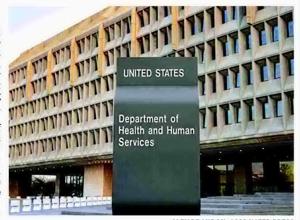New Tariffs Threaten Wine Industry, Impacting Global Trade

Negotiators from the United States and the European Union have recently announced a series of tariff exemptions as part of a new trade agreement, but notably excluded wine and other alcoholic products. While this omission may appear minor, it sets a concerning precedent that jeopardizes the wine industry and the collaborative spirit it has historically fostered across the Atlantic.
Wine has long played a vital role in celebratory occasions worldwide. Historically significant events featured wine prominently, such as the coronation celebrations of French kings in Reims, where champagne flowed freely. The Founding Fathers of America famously consumed over 100 bottles of wine during a single night at the Constitutional Convention in Philadelphia in 1787. From locker rooms celebrating championship victories to ship christenings, wine has been present at critical moments in history.
On a global scale, what has been termed “wine diplomacy” has helped establish positive relationships among nations, celebrating peace and forging treaties from antiquity to the present. Winston Churchill famously remarked, “It’s not just France we’re fighting for, it’s Champagne!” This highlights the cultural significance of wine, which has often been subjected to taxation throughout history, from the Roman Empire to modern times.
The historical context of wine serves as a reminder that flourishing trade typically accompanies the removal of barriers and taxes. For instance, protective provisions for wine regions were included in the Treaty of Versailles, which concluded World War I. Today, wine toasts continue to symbolize trust in negotiations, with state dinners at the White House showcasing wines from both the host nation and the honored guests’ countries.
To reinforce the importance of wine in global trade, 34 wine regions worldwide have united as the Wine Origins Alliance. Despite being competitors in the market—from Baja California to Barossa, Australia, and from Texas to Tokaj, Hungary—these regions recognize that reducing trade barriers benefits the entire industry rather than imposing new tariffs.
The newly imposed U.S.-EU wine tariff, set at 15 percent, may seem manageable relative to other products, but its implications are profound. Small- and medium-sized enterprises, which constitute 90 percent of the global wine industry, will bear the brunt of these additional costs. The repercussions extend beyond producers; importers, distributors, retailers, bars, and restaurants will also feel the impact. Each dollar of wine shipped to the United States generates $5 in economic benefits, illustrating the extensive reach of the wine industry on the economy.
Consumers in both America and Europe will experience the fallout from these tariffs. While price increases are the most obvious consequence, the reduction in consumer choice is significant. For example, if an Oregon wine cannot enter the European market due to tariffs, consumers lack a viable substitute. A wine from Oregon can only be produced in Oregon, just as Chianti Classico is exclusive to Italy. Thus, tariffs could limit consumer access to diverse wine offerings and hinder the exploration of global wine culture.
Moreover, tourism linked to wine regions thrives as visitors seek to explore the origins of their favorite wines. Travelers experience pride when they see their country’s wines featured in international venues, further enriching cultural exchange.
There is hope that future negotiations will consider these factors and work towards a favorable trade framework, ideally facilitating a low or zero-for-zero trade agreement for wine between the United States and the European Union. Such an agreement would acknowledge wine’s crucial role in fostering international cooperation and economic benefits, allowing both producers and consumers to reap the rewards of a more connected global wine market.






